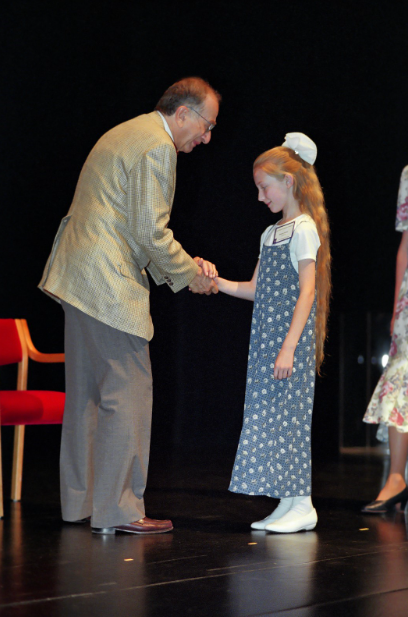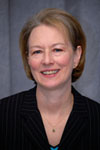by Dr. Laurie Croft, Associate Director for Professional Development
Gifted and talented students have unique social-emotional needs AND unique academic needs. Professional learning allows educators to understand and address those unique needs, and that facilitates student success in school and in life in a wide variety of ways. Peterson (2009) suggested that giftedness can actually be a risk factor for poor personal and educational outcomes. Comprehensive preparation to interact with and support the various challenges faced by gifted learners facilitates appropriate affective and academic development.
Belin-Blank Chautauqua 2022
The Belin-Blank Chautauqua provides six classes for professionals, who can take any or all. Allowing educators to spend time with others who share their focus on the nature and needs of gifted students—either in person on campus or via Zoom—each class meets from 9:00 – noon and 1:00 – 4:00 pm for the first two days of each class. Participants finish up any readings and final projects over the next couple of weeks, working online and independently.
All classes fulfill one of the strands required for the State of Iowa Talented and Gifted Endorsement and count toward the total number of 12 required credits. Enrolling in Chautauqua allows an educator to complete half of the endorsement this summer, and the different Chautauqua schedule from summer to summer allows a participant to complete the endorsement program the next year.
Those who enroll in all three graduate credits the first week receive a full tuition scholarship for one class; those who enroll in all six credits receive a full tuition scholarship for two classes, one each week. In other words, the Belin-Blank Center covers the cost of two of the six classes; the Center understands the value of professional development!
Chautauqua Courses in 2022
Chautauqua courses include the following in Week I:
Thinking Skills (EDTL:4072:0WKA), Jul 11 – 29, taught by Dr. Laurie Croft;
Topics: Executive Functioning for Learning and Life (new in 2022; EDTL:4096:0WKB), Jul 13 – Aug 2, taught by Dr. Kristine Milburn; and
Counseling and Psychological Needs of the Gifted (RCE:4125:0WKA, Jul 15 – Aug 4, taught by Dr. Debra Mishak.
Chautauqua continues in Week II:
Gender Issues and Giftedness (RCE:4123:0WKA), Jul 18 – Aug 5, taught by Dr. Haley Wikoff;
Topics: Infusing Language Arts with Creative Thinking (EDTL:4096:0WKC), Jul 20 – Aug 5, taught by Gwen Livingstone Pakora, MA; and
Staff Development for Gifted Programs (EPLS:4113:0WKA), Jul 22 – Aug 5, taught by Lori Danker, MA and MSE.
Learn more about Chautauqua at belinblank.org/chautauqua.
Advanced Placement Summer Institute
Teacher Training in Advanced Placement Courses (EDTL:5080:0WKA), available to those participating in the University of Iowa Advanced Placement Summer Institute. The Belin-Blank Center provides a 50% tuition scholarship, allowing participants to earn two hours for the cost of one graduate credit. The APSI takes place on campus from Jun 28 – Jul 1. Contact educators@belinblank.org about information to override the restriction on enrollment.
APSI participants benefit from earning another credit hour for Differentiation at the Secondary Level (EDTL:4074:0WKA), Jul 11 – 29, taught by Dr. Kristine Milburn. APSI participants receive a 50% tuition scholarship for this class, as well.
Fully Online and Asynchronous Courses
In addition to Chautauqua courses this summer, the Center, in partnership with the University of Iowa College of Education, is offering additional online courses that are fully asynchronous. Professional learning opportunities began at the end of May, but they continue in July, including:
Leadership Skills for G/T Students, K – 12 (EDTL:4029:0WKA), taught by Dr. Beth Maloney;
Differentiation at the Secondary Level (EDTL:4074:0WKA), Jul 11 – 29, taught by Dr. Kristine Milburn.
The practicum experience, required for the endorsement is available every semester, including summer.
For more information about all the summer professional learning opportunities available, visit belinblank.org/courses.
Visit belinblank.org/educators/reg for all the information you need to get registered as a non-degree seeking Distance and Online student.









































 When most people think of acceleration, they think of either skipping a grade or moving ahead in a particular subject. But did you know there are at least
When most people think of acceleration, they think of either skipping a grade or moving ahead in a particular subject. But did you know there are at least  Do you have a talented math learner? Be sure to check out the book,
Do you have a talented math learner? Be sure to check out the book, 












 The October-December 2011
The October-December 2011  The Belin-Blank Center’s Susan G. Assouline, Megan Foley Nicpon, and Lori Dockery recently published an article in the
The Belin-Blank Center’s Susan G. Assouline, Megan Foley Nicpon, and Lori Dockery recently published an article in the 




 Five finalists from the
Five finalists from the 

